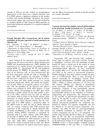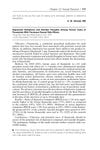 April 2021 in “IntechOpen eBooks”
April 2021 in “IntechOpen eBooks” Androgens, male hormones, affect physical and mental functions, with a decrease leading to health issues like muscle loss, bone disease, and depression, and more research is needed on long-term effects and treatments.
 March 2023 in “Translational Andrology and Urology”
March 2023 in “Translational Andrology and Urology” 5-alpha reductase inhibitors, like finasteride and dutasteride, are used for prostate issues, hair loss, and excessive hair growth, may help with COVID-19, but can cause sexual and mental health side effects, and their use in preventing prostate cancer needs more examination.
September 2022 in “Translational Andrology and Urology” Finasteride may cause lasting sexual and mental health issues, and genetic screening could help prevent them.
 April 2019 in “Advances in Cosmetic Surgery”
April 2019 in “Advances in Cosmetic Surgery” The document concludes that ongoing medical therapy is crucial for preventing hair loss, and surgical options can restore hair, with future treatments for hair loss being promising.
January 2024 in “International journal of molecular sciences” A brain-made hormone can protect against memory-related brain damage caused by harmful proteins.
 61 citations,
April 2014 in “The Journal of Steroid Biochemistry and Molecular Biology”
61 citations,
April 2014 in “The Journal of Steroid Biochemistry and Molecular Biology” Finasteride affects brain and blood steroids, causing lasting sexual and emotional side effects.
 34 citations,
April 2014 in “Psychopharmacology”
34 citations,
April 2014 in “Psychopharmacology” Stress and alcohol affect brain chemicals differently in rats, mice, and humans, influenced by genetic differences.
 9 citations,
January 2009 in “PubMed”
9 citations,
January 2009 in “PubMed” Finasteride treatment can decrease certain steroids and increase others, possibly leading to depression symptoms in some cases.
7 citations,
May 2017 in “Behavioural brain research” Changing neuroactive steroid levels early in life can affect how adult rats respond to alcohol's stimulating effects.
 2 citations,
July 2020 in “Behavioural Brain Research”
2 citations,
July 2020 in “Behavioural Brain Research” Changing neuroactive steroids in baby male rats affects their memory and learning differently as they grow up.
 September 2023 in “The Journal of Steroid Biochemistry and Molecular Biology”
September 2023 in “The Journal of Steroid Biochemistry and Molecular Biology” Stopping finasteride for male pattern hair loss changes neuroactive steroid levels in the brain and blood.
 44 citations,
July 2012 in “Endocrine Practice”
44 citations,
July 2012 in “Endocrine Practice” We need to learn more about 5α-reductases and neuroactive steroids to safely make drugs targeting these enzymes.
 134 citations,
June 2005 in “Neuropsychopharmacology”
134 citations,
June 2005 in “Neuropsychopharmacology” GABRA2 gene variations impact alcohol response, and hair loss medication finasteride reduces some effects.
48 citations,
February 1999 in “PubMed” Finasteride, a drug, can block the seizure-preventing effects of a hormone called progesterone in mice.
 35 citations,
November 2019 in “Frontiers in Neuroendocrinology”
35 citations,
November 2019 in “Frontiers in Neuroendocrinology” Men and women have different levels and production of brain steroids, which may affect their risk for certain brain disorders.
 33 citations,
April 2015 in “Current Opinion in Endocrinology, Diabetes and Obesity”
33 citations,
April 2015 in “Current Opinion in Endocrinology, Diabetes and Obesity” 5α reductase inhibitors treat hair loss but may cause sexual side effects and risks.
 26 citations,
November 2006 in “Pharmacology, Biochemistry and Behavior”
26 citations,
November 2006 in “Pharmacology, Biochemistry and Behavior” Pregnancy reduces anxiety in rats, but finasteride reverses this effect.
 9 citations,
January 2018 in “American Journal of Men's Health”
9 citations,
January 2018 in “American Journal of Men's Health” Finasteride use can cause lasting negative effects like sexual dysfunction, depression, anxiety, and cognitive issues.
 7 citations,
October 2017 in “Behavioural Pharmacology”
7 citations,
October 2017 in “Behavioural Pharmacology” Fluoxetine's effectiveness as an antidepressant in mice depends on a specific protein activity and a 5-minute pretest.
 4 citations,
January 2018 in “General Physiology and Biophysics”
4 citations,
January 2018 in “General Physiology and Biophysics” The steroids allopregnanolone and allotetrahydrodeoxycorticosteron worsened absence seizures in rats.
 July 2023 in “bioRxiv (Cold Spring Harbor Laboratory)”
July 2023 in “bioRxiv (Cold Spring Harbor Laboratory)” Seeing trauma causes fear in mice by lowering their natural fear-reducing hormones.
 November 2012 in “Endocrine Practice”
November 2012 in “Endocrine Practice” Enzymes called 5α-reductases have many body functions and need more research to safely use inhibitors.
 May 2006 in “Frontiers in Neuroendocrinology”
May 2006 in “Frontiers in Neuroendocrinology” Progesterone and its metabolites affect myelin protein expression differently in male and female rat Schwann cells.
 January 2022 in “International review of movement disorders”
January 2022 in “International review of movement disorders” Cannabinoid and steroid-based drugs could be new treatments for Tourette syndrome, but more research is needed to confirm their effectiveness and safety.
 29 citations,
July 2004 in “Pharmacology, Biochemistry and Behavior”
29 citations,
July 2004 in “Pharmacology, Biochemistry and Behavior” Finasteride reduces alcohol withdrawal effects, especially in female mice.
 January 2013 in “Yearbook of Urology”
January 2013 in “Yearbook of Urology” Former finasteride users showed higher rates of depression and suicidal thoughts compared to those who never used it.
 26 citations,
August 2014 in “PubMed”
26 citations,
August 2014 in “PubMed” Testosterone improves mood and thinking skills; finasteride has no effect.
 22 citations,
December 2010 in “Journal of Cosmetic Dermatology”
22 citations,
December 2010 in “Journal of Cosmetic Dermatology” Finasteride may increase depression by reducing brain cell growth.
 21 citations,
June 2005 in “Alcoholism: Clinical and Experimental Research”
21 citations,
June 2005 in “Alcoholism: Clinical and Experimental Research” Finasteride reduces alcohol withdrawal severity and anxiety in mice, but may increase withdrawal severity in some cases.
 12 citations,
January 2013 in “Alcohol and Alcoholism”
12 citations,
January 2013 in “Alcohol and Alcoholism” Alcohol in teen years leads to more adult drinking, finasteride doesn't help.

























